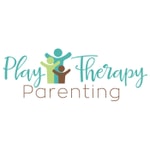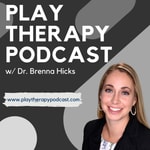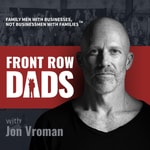Play Therapy Parenting Podcast – Details, episodes & analysis
Podcast details
Technical and general information from the podcast's RSS feed.


Recent rankings
Latest chart positions across Apple Podcasts and Spotify rankings.
Apple Podcasts
🇩🇪 Germany - parenting
02/08/2025#70🇨🇦 Canada - parenting
19/07/2025#92🇺🇸 USA - parenting
30/06/2025#82🇺🇸 USA - parenting
29/06/2025#89🇬🇧 Great Britain - parenting
28/06/2025#85🇨🇦 Canada - parenting
12/06/2025#56🇨🇦 Canada - parenting
01/06/2025#86🇨🇦 Canada - parenting
29/05/2025#100🇨🇦 Canada - parenting
28/05/2025#61🇨🇦 Canada - parenting
27/05/2025#74
Spotify
No recent rankings available
Shared links between episodes and podcasts
Links found in episode descriptions and other podcasts that share them.
See all- https://twitter.com/thekidcounselor
607 shares
RSS feed quality and score
Technical evaluation of the podcast's RSS feed quality and structure.
See allScore global : 52%
Publication history
Monthly episode publishing history over the past years.
S2E25 - Too Late to Start? Implementing Play Therapy Techniques with Older Kids
Season 2 · Episode 25
vendredi 23 août 2024 • Duration 17:11
In this episode of the Play Therapy Parenting Podcast, I answer a question from Amy, a mom of two from Florida, who is navigating the challenge of implementing child-centered play therapy principles with her 12 and 9-year-olds. Amy is concerned about whether it’s too late to start using these techniques with older children and asks about handling mean words, backtalk, and yelling in her home. I discuss how these strategies can be applied effectively at any age, and I offer practical advice on setting limits, staying calm during heated moments, and using child-centered techniques even when the dynamics in the family begin to shift.
I also explore the importance of setting expectations at neutral times and providing clear, concrete limits to guide children’s behavior. Amy’s question is a great reminder that it’s never too late to start implementing these principles, and every step you take to improve your parenting skills will positively impact your children for the rest of their lives.
Ask Me Questions: Call (813) 812-5525, or email: brenna@thekidcounselor.com
Podcast HQ: https://www.playtherapyparenting.com/
My Newsletter Signup: https://www.playtherapyparenting.com/newsletter/
My Podcast Partner, Gabb Wireless: https://www.playtherapyparenting.com/gabb/
Common References:
Landreth, G.L. (2023). Play Therapy: The Art of the Relationship (4th ed.). Routledge.
Bratton, S. C., Landreth, G. L., Kellam, T., & Blackard, S. R. (2006). Child parent relationship therapy (CPRT) treatment manual: A 10-session filial therapy model for training parents. Routledge/Taylor & Francis Group.
S2E24 - When Encouragement Backfires: Reflecting Feelings and Building Esteem in Sensitive Kids
Season 2 · Episode 24
lundi 12 août 2024 • Duration 13:42
In this episode, I address a question from Nell in Ireland about using encouragement and esteem-building techniques with a sensitive child who doesn't respond well in challenging moments. I discuss the importance of ensuring our tone of voice and facial expressions are congruent with the child's emotional state, especially when they're frustrated or struggling.
I emphasize the value of reflecting feelings before offering encouragement. This approach validates the child's emotions and creates a connection, making them more receptive to encouragement. I also touch on the necessity of setting limits when a child reacts inappropriately, such as pushing or hitting.
Finally, I explain why we should persist with encouragement and esteem-building, even when children initially resist. These techniques communicate our belief in their capabilities, contribute to a positive self-fulfilling prophecy, and help shape their self-concept through the "looking glass self" principle. I reassure parents that as a child's self-esteem increases, so will their frustration tolerance, making them more receptive to encouragement over time.
Ask Me Questions: Call (813) 812-5525, or email: brenna@thekidcounselor.com
Podcast HQ: https://www.playtherapyparenting.com/
My Newsletter Signup: https://www.playtherapyparenting.com/newsletter/
My Podcast Partner, Gabb Wireless: https://www.playtherapyparenting.com/gabb/
Common References:
Landreth, G.L. (2023). Play Therapy: The Art of the Relationship (4th ed.). Routledge.
Bratton, S. C., Landreth, G. L., Kellam, T., & Blackard, S. R. (2006). Child parent relationship therapy (CPRT) treatment manual: A 10-session filial therapy model for training parents. Routledge/Taylor & Francis Group.
S2E15 - Keeping Your Relationship with Your Child at the Center of Parenting
Season 2 · Episode 15
lundi 3 juin 2024 • Duration 14:14
In this episode, I talk about how the relationship with your child is the most important thing, even more important than the specific parenting skills and techniques we've been discussing. While learning and applying skills like reflecting feelings, setting limits, giving choices, and using encouragement are certainly valuable, we can't lose sight of why we use those approaches in the first place.
It all comes back to preserving and strengthening our relationship with our kids. Every time a child is struggling or misbehaving, there is almost always a fracture or damage to the relationship that has occurred. By focusing on the child and the relationship rather than just on the frustrating behavior, we keep that relationship at the center. The beauty of parenting is we have a built-in relationship with our child from the very beginning. Our job is to maintain and nurture that precious bond, and child-centered parenting principles give us effective tools to do just that.
The goal is not to robotically check skills off a list, but to deeply, intentionally and thoughtfully engage with our children in ways that communicate "I'm here, I hear you, I understand, I care, and I delight in you." This is what it means to take a kind approach to parenting. I hope this discussion encourages you and keeps you grounded in what matters most - your relationship with your kids.
Ask Me Questions: Call (813) 812-5525, or email: brenna@thekidcounselor.com
Podcast HQ: https://www.playtherapyparenting.com/
My Newsletter Signup: https://www.playtherapyparenting.com/newsletter/
My Podcast Partner, Gabb Wireless: https://www.playtherapyparenting.com/gabb/
References:
Landreth, G. L. (2002). Play therapy: The art of the relationship (2nd ed.). Brunner-Routledge.
Bratton, S. C., Landreth, G. L., Kellam, T., & Blackard, S. R. (2006). Child parent relationship therapy (CPRT) treatment manual: A 10-session filial therapy model for training parents. Routledge/Taylor & Francis Group.
S2E14 - Encouragement: The Easiest and Most Effective Parenting Tool You Can Use Every Day
Season 2 · Episode 14
vendredi 17 mai 2024 • Duration 10:54
In today's episode, I discuss the importance of encouragement and how it differs from praise when it comes to parenting. Encouragement is all about focusing on your child's efforts and contributions, rather than giving value-laden words that have opposites, like "good" or "awesome." When you encourage your child by starting with "you" and acknowledging their perseverance, problem-solving skills, or willingness to take on challenges, you help them develop a healthy self-concept and sense of identity. This empowers them and reduces power struggles, as they feel a measure of control over their circumstances. I encourage you to challenge yourself this week to use encouragement every time your child does something, as they will provide you with plenty of opportunities to do so throughout the day.
Ask Me Questions: Call (813) 812-5525, or email: brenna@thekidcounselor.com
Podcast HQ: https://www.playtherapyparenting.com/
My Newsletter Signup: https://www.playtherapyparenting.com/newsletter/
My Podcast Partner, Gabb Wireless: https://www.playtherapyparenting.com/gabb/
References:
Landreth, G. L. (2002). Play therapy: The art of the relationship (2nd ed.). Brunner-Routledge.
Bratton, S. C., Landreth, G. L., Kellam, T., & Blackard, S. R. (2006). Child parent relationship therapy (CPRT) treatment manual: A 10-session filial therapy model for training parents. Routledge/Taylor & Francis Group.
S2E13 - Gentle Parenting vs. Child-Centered Play Therapy Parenting: Which Path Leads to Better Outcomes?
Season 2 · Episode 13
mercredi 8 mai 2024 • Duration 17:14
In this episode, I address a listener's question about gentle parenting and whether it has gone too far. I discuss the principles of gentle parenting and contrast them with the child-centered approach, highlighting the importance of setting appropriate limits and boundaries while maintaining a kind, respectful, and relational dynamic with your child.
I explain that while gentle parenting aims to build a healthy bond and meet a child's needs, it often lacks a comprehensive framework for effective discipline. The child-centered approach, on the other hand, is highlighted by a well-researched framework of interacting with children, and empowers them to make choices within clearly defined limits, fostering self-control and responsibility.
I emphasize that the child-centered method is indeed gentle, as it prioritizes preserving the parent-child relationship through understanding, kindness, and respect. By using the four pillars of play therapy, parents can remain in control of their emotions, honor their child's uniqueness, and respond appropriately to their child's emotional state, all while establishing boundaries and expectations.
Ultimately, I encourage parents to embrace the child-centered approach as a more effective and complete system for achieving the desired outcomes of gentle parenting.
Ask Me Questions: Call (813) 812-5525, or email: brenna@thekidcounselor.com
Podcast HQ: https://www.playtherapyparenting.com/
My Newsletter Signup: https://www.playtherapyparenting.com/newsletter/
My Podcast Partner, Gabb Wireless: https://www.playtherapyparenting.com/gabb/
References:
Landreth, G. L. (2002). Play therapy: The art of the relationship (2nd ed.). Brunner-Routledge.
Bratton, S. C., Landreth, G. L., Kellam, T., & Blackard, S. R. (2006). Child parent relationship therapy (CPRT) treatment manual: A 10-session filial therapy model for training parents. Routledge/Taylor & Francis Group.
S2E12 - Applying Limit Setting at Home: Effective Strategies for Every Day Parenting
Season 2 · Episode 12
mercredi 1 mai 2024 • Duration 15:56
In today's episode of the Play Therapy Parenting Podcast, we're diving into the practical application of the "limit setting" pillar in daily parenting. Now that we’ve covered the four foundational pillars, it’s time to see how we can apply these skills in everyday interactions with our kids. Limit setting is unique in that it combines the other pillars—reflecting feelings and giving choices—making it a nuanced yet powerful tool for effective discipline.
I explore how limit setting can be used proactively to address daily struggles, such as managing snack times, bedtime routines, or sibling conflicts. It's about offering healthy alternatives to empower our children while setting boundaries that maintain their well-being.
Finally, I emphasize the importance of consistent follow-through with limits. Children learn to take responsibility for their actions when we clearly communicate choices and their consequences. It's about empowering our kids to make their own decisions and take ownership of their behavior.
I'd love to hear your thoughts or any questions you might have. Feel free to email me at brenna@thekidcounselor.com or leave a message at (813) 812-5525. Also, don't forget to visit playtherapyparenting.com to sign up for my newsletter and receive a free workshop. I'm grateful for your commitment to your kids, and I'm here to help you along the journey. Let's keep practicing limit setting together!
Ask Me Questions: Call (813) 812-5525, or email: brenna@thekidcounselor.com
Podcast HQ: https://www.playtherapyparenting.com/
My Newsletter Signup: https://www.playtherapyparenting.com/newsletter/
My Podcast Partner, Gabb Wireless: https://www.playtherapyparenting.com/gabb/
References:
Cochran, N., Nordling, W., & Cochran, J. (2010). Child-Centered Play Therapy (1st ed.). Wiley.
VanFleet, R., Sywulak, A. E., & Sniscak, C. C. (2010). Child-centered play therapy. Guilford Press.
Landreth, G. L. (2002). Play therapy: The art of the relationship (2nd ed.). Brunner-Routledge.
Bratton, S. C., Landreth, G. L., Kellam, T., & Blackard, S. R. (2006). Child parent relationship therapy (CPRT) treatment manual: A 10-session filial therapy model for training parents. Routledge/Taylor & Francis Group.
Benedict, Helen. Themes in Play Therapy. Used with permission to Heartland Play Therapy Institute.
S2E11 - Using the Choice-Giving Skill at Home: The Key to Reducing Power Struggles
Season 2 · Episode 11
jeudi 25 avril 2024 • Duration 13:09
In this episode, I discuss how to practically apply the "choice-giving" pillar from the child-centered play therapy parenting framework. I cover two types of choices to give your kids:
Empowerment Choices
- Give your kids choices just for the sake of letting them feel empowered and in control
- Examples: Let them choose how to get to the car (hold your hand or push the cart), what to eat/drink, what to wear, where to sit in the car, what music to listen to, etc.
- This gives your kids a measure of control within your set boundaries
Enforcement Choices
- Give choices tied to reinforcing a limit you've set
- Map the choices to your child's original desire/want
- Example: If they want to play before dinner, the choices could be to play with friends after dinner or watch TV after dinner
I emphasize using the word "choose" multiple times when offering choices to make it clear the child has the power to decide. Giving choices reduces power struggles, builds self-confidence, and helps kids practice decision-making skills.
Ask Me Questions: Call (813) 812-5525, or email: brenna@thekidcounselor.com
Podcast HQ: https://www.playtherapyparenting.com/
My Newsletter Signup: https://www.playtherapyparenting.com/newsletter/
My Podcast Partner, Gabb Wireless: https://www.playtherapyparenting.com/gabb/
References:
Cochran, N., Nordling, W., & Cochran, J. (2010). Child-Centered Play Therapy (1st ed.). Wiley.
VanFleet, R., Sywulak, A. E., & Sniscak, C. C. (2010). Child-centered play therapy. Guilford Press.
Landreth, G. L. (2002). Play therapy: The art of the relationship (2nd ed.). Brunner-Routledge.
Bratton, S. C., Landreth, G. L., Kellam, T., & Blackard, S. R. (2006). Child parent relationship therapy (CPRT) treatment manual: A 10-session filial therapy model for training parents. Routledge/Taylor & Francis Group.
Benedict, Helen. Themes in Play Therapy. Used with permission to Heartland Play Therapy Institute.
S2E10 - Reflecting Feelings with Your Child at Home: From Theory to Practice
Season 2 · Episode 10
mercredi 17 avril 2024 • Duration 14:01
In this episode, we explore the practical aspects of Reflecting Feelings, focusing on how this essential skill can be effectively used in daily interactions with children. Our goal is to demystify the process and encourage more confident and consistent application in your parenting.
Key Points Covered:
Understanding Reflecting Feelings: An overview of why this skill is fundamental yet challenging, emphasizing its importance in validating children’s emotions.
Practical Application: Step-by-step guidance on how to reflect feelings accurately, from recognizing nonverbal cues to matching your verbal responses with your child's emotional states.
Real-Life Scenarios: Examples of how to apply the Reflecting Feelings skill throughout the day, from positive expressions like joy and pride to handling negative emotions like disappointment and frustration.
We delve into how consistent practice of this skill helps build a stronger, more empathetic connection with your child, enabling them to feel heard and understood. This connection is crucial for their emotional development and can significantly enhance your effectiveness as a parent.
Call to Action:
This week, I challenge you to consciously practice reflecting feelings with your children. Notice the multitude of opportunities you have to engage this skill, and observe the positive impact it has on your interactions.
For more insights and to continue this conversation, don’t hesitate to reach out via email at brenna@thekidcounselor.com or leave a message at (813) 812-5525. Your feedback and questions are invaluable, and they help us shape future content that meets your needs.
Remember, the journey to calm, confident, and in-control parenting continues with each skill we master. Let's keep learning and growing together. Thank you for joining me today, and I look forward to our next session!
Ask Me Questions: Call (813) 812-5525, or email: brenna@thekidcounselor.com
Podcast HQ: https://www.playtherapyparenting.com/
My Newsletter Signup: https://www.playtherapyparenting.com/newsletter/
My Podcast Partner, Gabb Wireless: https://www.playtherapyparenting.com/gabb/
References:
Cochran, N., Nordling, W., & Cochran, J. (2010). Child-Centered Play Therapy (1st ed.). Wiley.
VanFleet, R., Sywulak, A. E., & Sniscak, C. C. (2010). Child-centered play therapy. Guilford Press.
Landreth, G. L. (2002). Play therapy: The art of the relationship (2nd ed.). Brunner-Routledge.
Bratton, S. C., Landreth, G. L., Kellam, T., & Blackard, S. R. (2006). Child parent relationship therapy (CPRT) treatment manual: A 10-session filial therapy model for training parents. Routledge/Taylor & Francis Group.
Benedict, Helen. Themes in Play Therapy. Used with permission to Heartland Play Therapy Institute.
S2E9 - Addressing Body Image Concerns in Young Children
Season 2 · Episode 9
vendredi 12 avril 2024 • Duration 14:40
S2E8 - Encouragement vs. Praise: The Key to Nurturing Self-Esteem in Your Child
Season 2 · Episode 8
mercredi 10 avril 2024 • Duration 23:18









